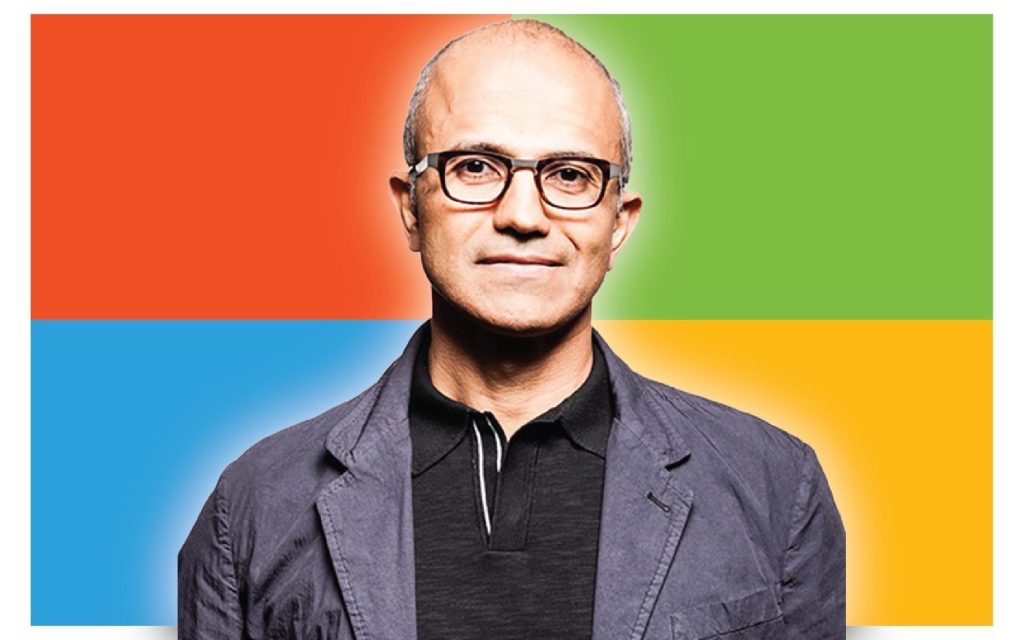The reductions in employment, representing less than 5% of the company’s workforce, are the most significant in approximately 8 years.
On Wednesday, Microsoft joined the roster of large technology firms that have announced plans to reduce their workforce. This trend has emerged due to an excess of hiring during the pandemic and uncertainty about the economy.
Satya Nadella, Microsoft’s CEO, announced that the company would dismiss 10,000 employees to control costs in the face of economic instability and redirect attention to key priorities such as Artificial Intelligence.
As of June, Microsoft had a workforce of approximately 221,000, and the cuts constitute less than 5% of its worldwide workforce.
By making these cuts, Microsoft joins several other major technology companies that have scaled back their hiring after intense recruitment to keep pace with the rapid increase in demand for online services and cloud computing caused by the pandemic. As a result, the technology sector experienced growth faster in recent years than it has in decades, similar to the expansion of the dot-com boom in the 1990s.

Source: businesstoday.in
In response to the strong demand from customers, Microsoft and other companies in the same industry hired an excessive number of technical staff. However, as the market slowed down last year with workers returning to their offices, budgets being impacted by inflation, and consumers looking for entertainment options outside their homes, they had to adjust.
“The fact is, hiring can be adjusted swiftly, and that is what is happening,” said Brad Reback, an analyst at Stifel investment bank. “I do not believe this indicates a larger problem.”
The technology industry, which experienced a significant boom in recent years due to the pandemic-fueled surge in online services and the expansion of cloud computing, is now facing a slowdown. As a result, many companies in the sector are announcing layoffs as they adjust to the changing market conditions. The deceleration in the industry has been particularly hard on smaller tech firms, and those that specialized in newer concepts like crypto have been significantly affected. But even the industry’s giants, such as Microsoft, have not been spared. Among the major companies in the tech industry, only Alphabet and Apple have not yet announced significant layoffs. It indicates that even the largest and most established players in the industry are not immune to the challenges posed by the current market conditions.
On Wednesday, at the World Economic Forum annual meeting in Davos, Switzerland, Microsoft CEO Satya Nadella discussed the current state of the technology industry and the need for efficiency. He acknowledged that, while the tech industry had experienced rapid growth during the pandemic, it was now time for companies to become more efficient to sustain that growth. Nadella stated that the industry needs to demonstrate its productivity gains by utilizing its technology. He emphasized that this is an important step for the industry to continue thriving in the current economic environment. Nadella’s statement highlights the need for technology companies to adapt and become more efficient to maintain their success in the long term.
Even though some of the technology industry’s largest companies continue to record billions of dollars in profits, for the quarter ending September, Microsoft generated $50 billion in sales, resulting in $17.6 billion in profit. Additionally, the company has continued to distribute profits to investors via quarterly dividends and a $60 billion share buyback program authorized by the Board of Directors in 2021.
Microsoft’s annual revenue has increased by 58% in the past three years, during which time the company has hired over 75,000 people. However, with increasing interest rates and the possibility of a recession, the company’s outlook has become more cautious. In the latest quarter, the company reported its slowest growth in five years and warned that the results in the future might be weaker.
On Wednesday, Microsoft’s stock price closed down nearly 2%, and it has decreased about 22% in the past year, which is better than many of its competitors in the technology industry. The company is set to release its next quarterly earnings report on Tuesday. Despite this, Microsoft is proceeding with several costly investments, such as the potential addition of $10 billion into its investment in OpenAI, which is known for developing the popular ChatGPT artificial intelligence system. Additionally, the company faces challenges from global antitrust regulators with its $69 billion acquisition of video game maker Activision.

satya nadella Source: leverageedu.com
“These layoffs are the kinds of hard choices we have made throughout our 47-year history to remain a consequential company in this industry that is unforgiving to anyone who doesn’t adapt to platform shifts,” said Nadella in a message to staff.
The job cuts, which began on Wednesday and will continue until March, are the company’s largest in approximately eight years. CEO Satya Nadella had previously cut about 25,000 jobs throughout 2014 and 2015 as part of the company’s efforts to move away from its failed acquisition of mobile phone maker Nokia.
Although several major technology companies, including Microsoft, Amazon, and Meta, have recently announced layoffs, the overall job market remains relatively robust. In addition, the recent slowing of wage growth has given some investors hope that it will ease the Federal Reserve’s need to continue increasing interest rates. However, hiring has only slightly slowed down.
Despite the layoffs from some of the major technology companies, the skills of engineers and other technical talent are still highly sought after. According to labor analysts and recruiters, those who lose their jobs are likely to find employment in banking, retail, and healthcare, which are in the process of digitizing their operations, instead of at big tech firms.
In his employee message, Nadella explained that customers want to achieve more while spending less. He also noted that companies in all industries and locations are cautious as some regions are currently in a recession while others expect one.
According to Nadella, the changes, including severance pay and other restructuring expenses, will amount to $1.2 billion. In a filing with regulatory authorities, Microsoft stated that some costs would result from consolidating office leases and “adjustments to our hardware portfolio.”
Microsoft produces the Surface line of laptops and tablets. However, the demand for personal computers had dropped significantly from the peak during the pandemic, when companies and households purchased laptops for remote work and online learning. In October, the company’s Chief Financial Officer, Amy Hood, informed investors that the decline in consumer PC sales, which began in September, is expected to persist until at least June.
Mr. Nadella said the company would continue to hire in strategic areas and called advances in artificial intelligence “the next major wave of computing.”
Other large technology companies are also taking steps to cut costs. For example, on Wednesday, Amazon announced a significant round of layoffs to reduce its corporate workforce by approximately 18,000 jobs.
“The transition out of the Covid-19 pandemic in the past year has been challenging,” said Doug Herrington, head of Amazon’s retail and operations business, in a message to staff obtained by The New York Times on Wednesday.
He added that although the company had trimmed expenses, “we’ve determined that we need to take further steps to improve our cost structure so we can keep investing in the customer experience that attracts customers to Amazon and grows our business.”
Herrington stated in his message that the company would continue allocating resources in healthcare and grocery.
The business software company Salesforce said this month that it planned to lay off 10 percent of its workforce, or about 8,000 employees, and Meta, the parent company of Facebook, announced at the end of last year that it was cutting more than 11,000 jobs.



